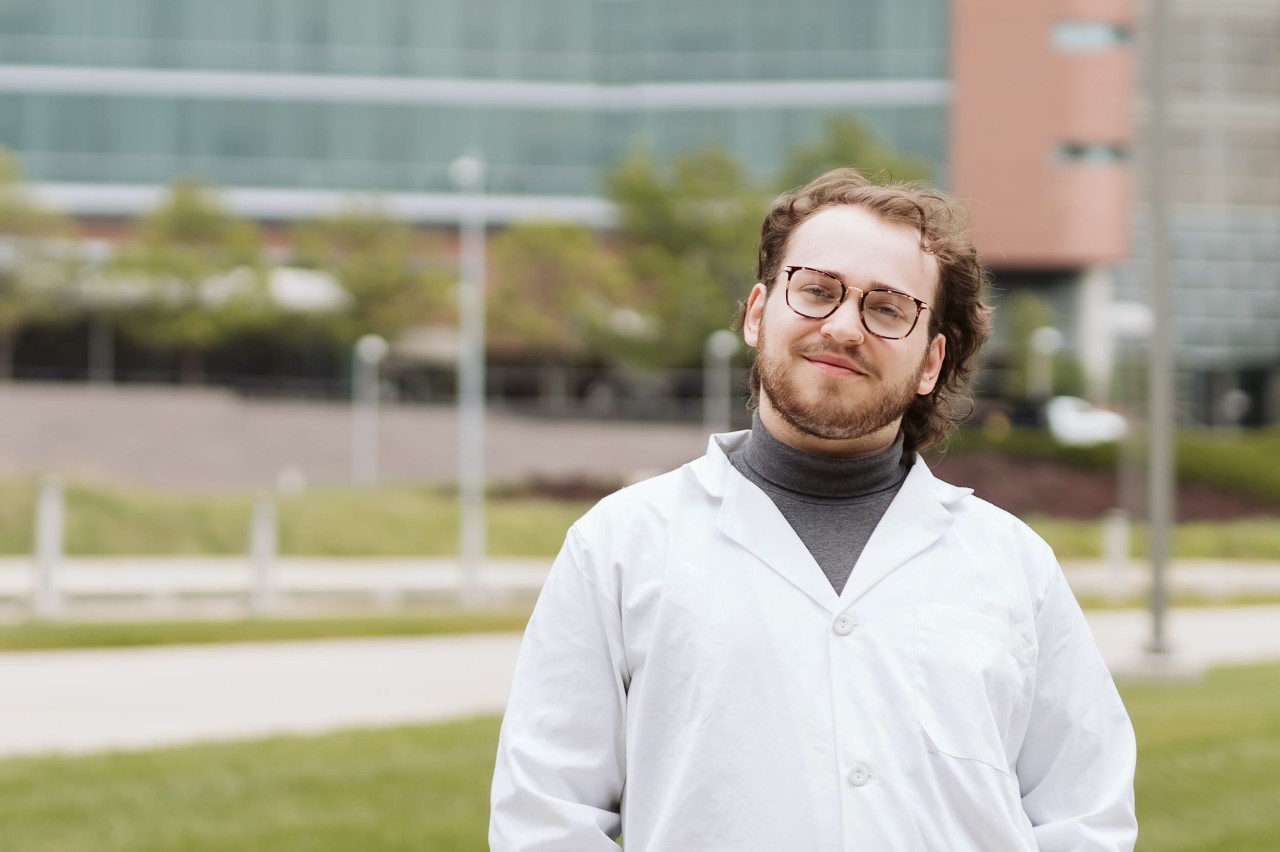
UC’s growing resources for first-generation students
For Trenton Stern, science and math captured his interest in high school, placing him on a path that ultimately led to the University of Cincinnati.
His parents were both Navy veterans and discussed the benefits of the military after graduation, but that didn’t seem right for Stern, now a UC senior studying biomedical studies and pre-medicine, with hopes of someday becoming a pediatrician.
“I have always wanted to do something in the STEM field. Later when I decided I wanted to go into medicine, the only way forward was to go to college,” says Stern, who grew up in Columbus, Ohio. “College was kind of always like the natural route for me. I was always more of an academic.”
He wanted a little distance from family, but not too far, and after a visit to UC, the decision to become a Bearcat was a no-brainer.
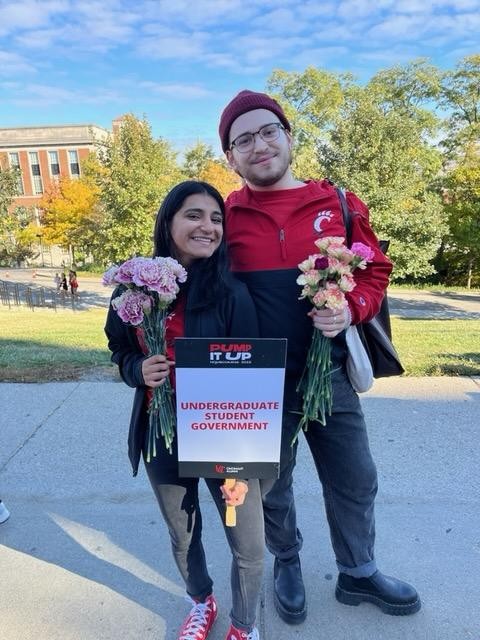
Photo/provided
Stern is among the nearly one in five UC students who are considered first-generation college students — meaning they and their siblings are the first in their family to attend a four-year institution of higher learning. UC is attracting a growing number of first-gen students; their numbers jumped by 8% this fall on campus.
Currently UC has 9,259 Bearcats who are first-generation college students. They account for 29.7% of first-year students and 18.2% of the total student body.
“I liked everything about UC when I came for a tour and it was the first time I had been in Cincinnati,” says Stern. “I loved the campus and I thought it would be a great place to grow as a person. I want to stay at UC and attend medical school, the oldest in Ohio, which I think is also very cool.”
Several programs and departments at UC are honoring first-gen students the week of Nov. 6-12 as part of activities around a national First-Generation College Celebration Day set officially for Nov. 8. High school students are invited for a campus tour and UC waives its application fee for prospective students who are considered first-generation college students.
For more events celebrating first-gen students this week check out GetInvolvedUC.
First-gen facts
- First-gen UC students represent 87 countries and 36 states as well as the District of Columbia
- 96.2% of first-gen students are employed or continuing their education upon graduation
- Women are 59% of first-gen students and men 41%
- 90.5% of first-gen students take in-person classes while 9.5% are distance learning students
- The largest share of first-gen students, 24.1%, are in the College of Arts & Sciences, followed by 20.9% at regional campus UC Blue Ash, 11.5% in the College of Education, Criminal Justice, and Human Services and 10.2% in the Carl H. Lindner College of Business. First-gen students are represented in each of UC’s 14 colleges.
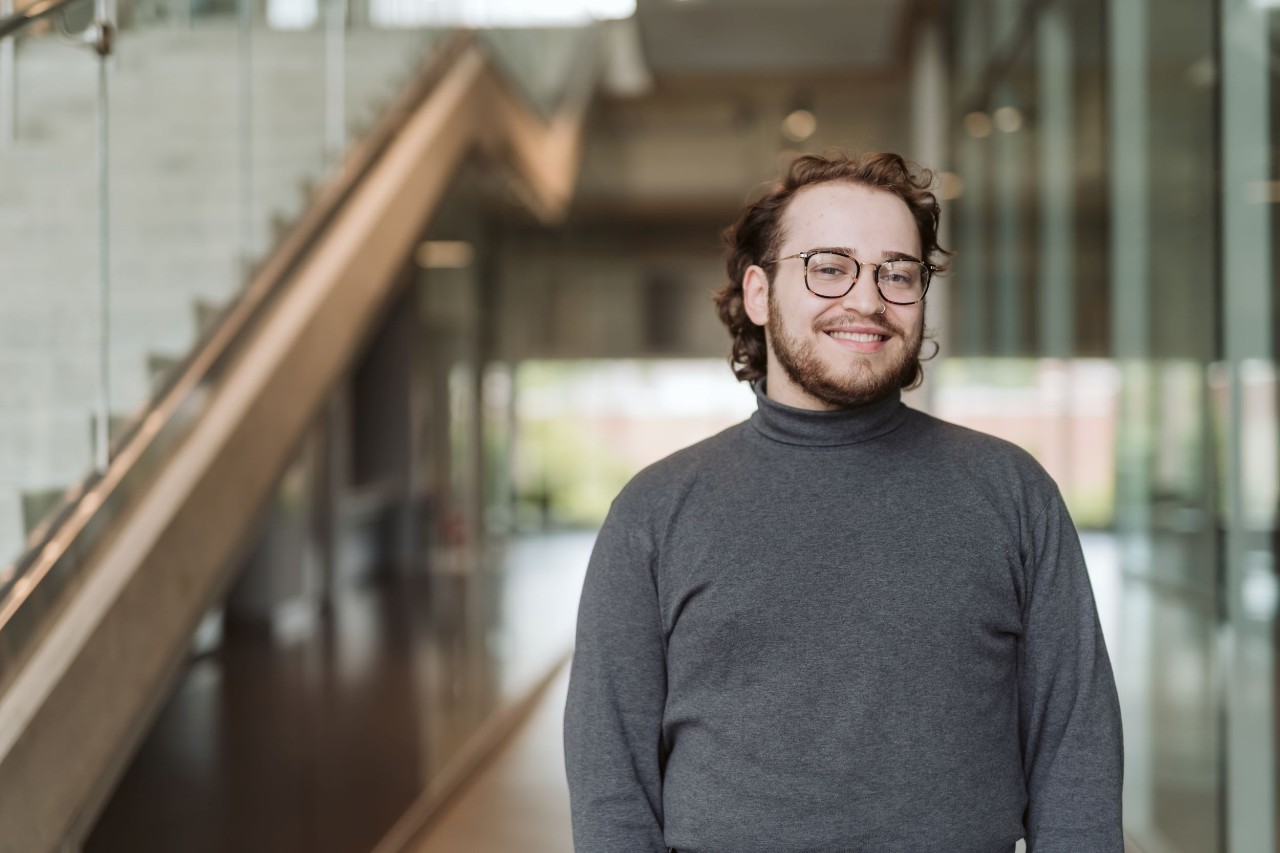
Trenton Stern on the UC medical campus. Photo/courtesy of UC Foundation
Working with first-generation students
Locating campus resources and understanding financial aid were challenges for Stern. “I was very lost,” he says. “It started with the application process and then continued as I was orienting to being a new student.”
“I think it didn’t help that most people, even my high school counselors, didn't know I was a first-generation student,” says Stern. “They just thought that I knew everything. But I knew nothing. I knew that you go to college and you get a degree and you get a job.
“I didn’t know what college looked like until I got here,” he says.
During his first year, Stern found that student orientation leaders were among the first to offer helpful advice. A resident adviser (RA) also provided information. But much of what Stern learned was through experience and getting involved. He’s been active in student government since his second semester at UC and decided to become an RA during his second year.
Stern wanted to help other first-generation students. He spent the last two years as an RA at Stratford Heights, with one at the 1MPACT House, a residential community created for first-generation college students in the Gen-1 program at UC.
“For my first-year students, I like to be very intentional with one-on-one interactions,” says Stern. “I ask and answer every question that they might have about school. I ask them, ‘What are you involved in?’, ‘How are your classes going?’ and ‘Do you know all the resources available to you?’ Even if you think they know, I still tell them. I make sure they know about the learning communities at UC and how to meet with their advisers.”
“I always make sure they know that I am a resource for more than just things related to housing,” says Stern.
Stern likes to introduce the residents he assists to many different programs at UC, as he is an advocate for connecting with the LGBTQ Center, the African American Cultural & Resource Center, the Women’s Center and the Office of Ethnic Programs and Services.
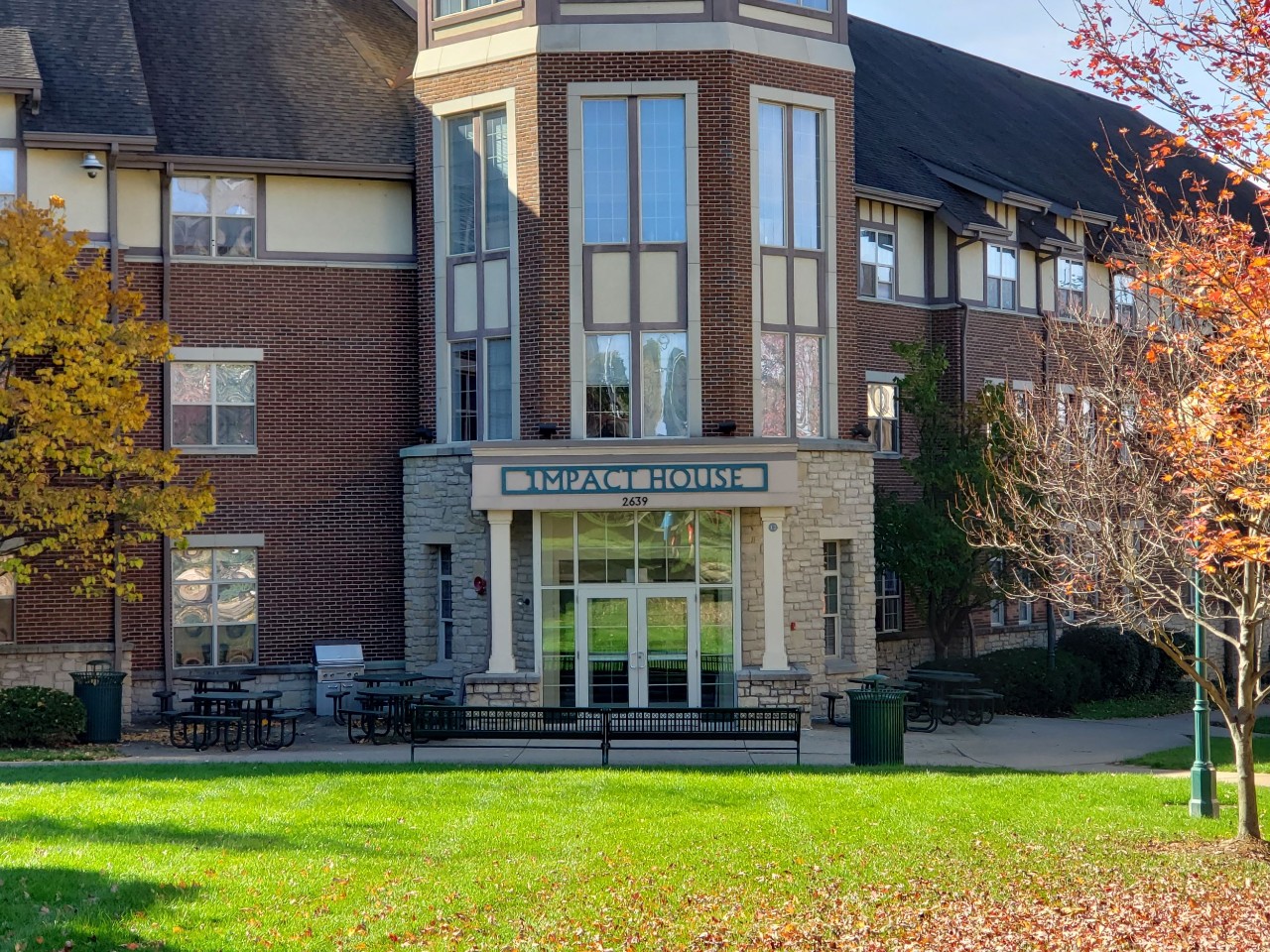
The 1MPACT House is a residential community created for first-generation college students in the Gen-1 program at UC. Photo/provided
UC expanding first-gen efforts
Suzette Combs, director of the Gen-1/1MPACT House, says UC is expanding efforts that specifically target first-generation students.
The 1MPACT House and the Gen-1 program together offer support to about 250 students, with the dedicated housing 1MPACT House providing a residential community for first-gen students. The Gen-1 program offers scholarships, has a service-learning component and is among the nation’s first living-learning communities supporting Pell-eligible, first-generation students in their transition to college life and throughout their college careers.
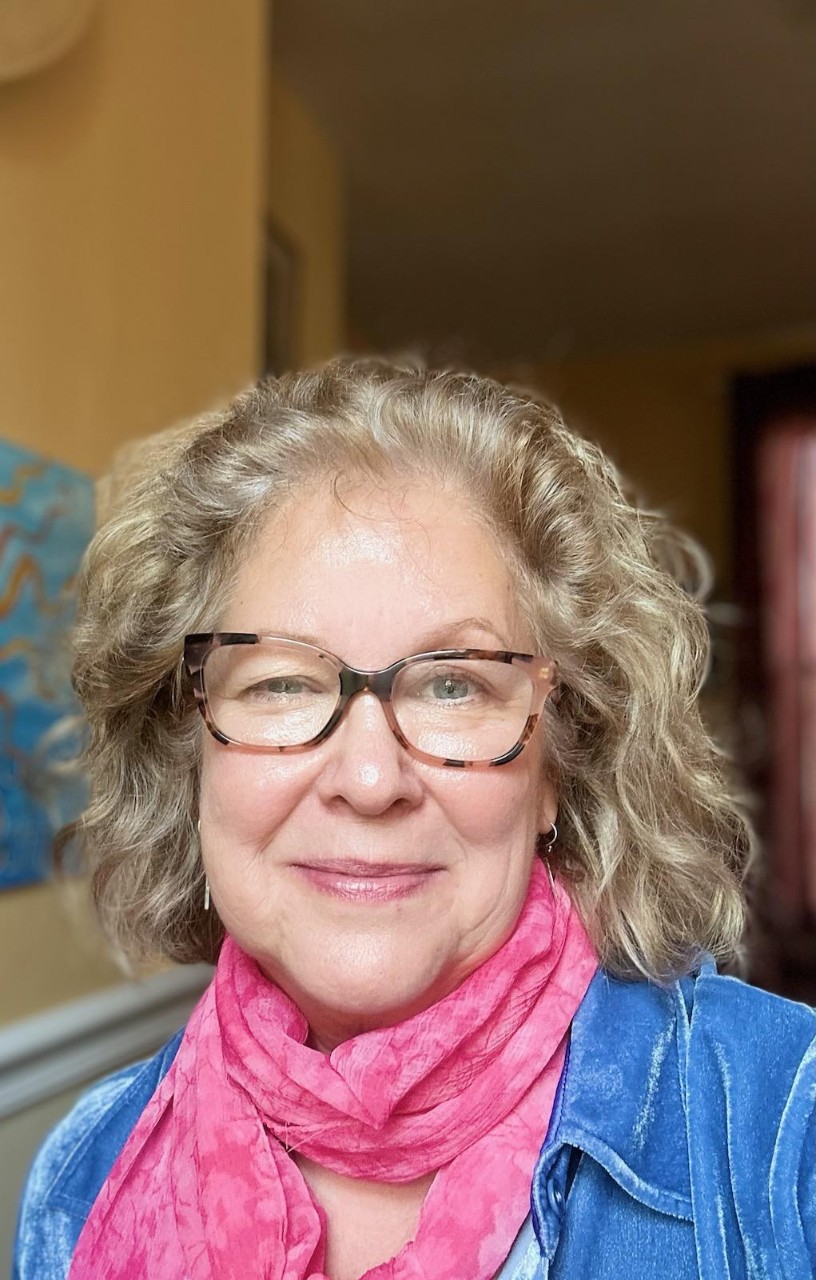
Suzette Combs | Photo/provided
Combs said success coaches have been hired to focus on the needs of first-generation students in multiple areas including students in the College of Arts & Sciences, the College of Allied Health Sciences, Blue Ash College and Pell Grant-eligible students in programs across the university.
“Our efforts are targeted to a particular vein of first-generation college students,” says Combs. “But it’s really important to know that as this population increases, it’s going to take a heavy lift on the part of the university to meet all of our first-generation students where they are.”
“And they are talented, smart, motivated, but perhaps they also need additional human, cultural and financial resources,” says Combs.
Combs said many of the first-generation students are used to being leaders in their families, schools and communities. But the college experience is something they’ve not had and they find themselves in a new role.
“They’re not used to asking for help for themselves,” says Combs. “In high school, they were busy helping everyone else and that includes academic help. They’ve been the tutor, not the one who needs tutoring.
“They get to college and it’s a whole new world. That can be very isolating, to get here and start to struggle when you have never struggled academically before,” says Combs. “It fosters that ‘imposter syndrome’ of maybe I don’t belong here. And so we have to help them realize this is completely normal, and yes, you do belong.”
At UC's regional campuses, Blue Ash College and Clermont College, first-gen students have historically been a large and important part of their student populations. Both regional campuses have been valuable entry points for first-gen students at UC.
About a quarter of students at UC Clermont are first-gen while at Blue Ash College the figure hovers near half of all students.
"UC Clermont with its affordable tutition, open-access admission, small campus and many programs and scholarships geared toward making college accessible to all, has long long been a friendly entry point for first-gen students," explains Dawn Hundley, director of student success at UC Clermont.
"Our Student Sucess Office focuses specially on helping each student, particularly students with limited academic resources find their individual path to success," says Hundley.
Students at UC Blue Ash have access to free academic support resources that include a Math Lab, Science Learning Lab and Writing and Study Skills Center. The college also provides a Success Coaching program for most incoming freshman with a focus on first-gen students. Coaches help students with navigating campus resources and financial aid, setting goals, and enhancing their time management skills.
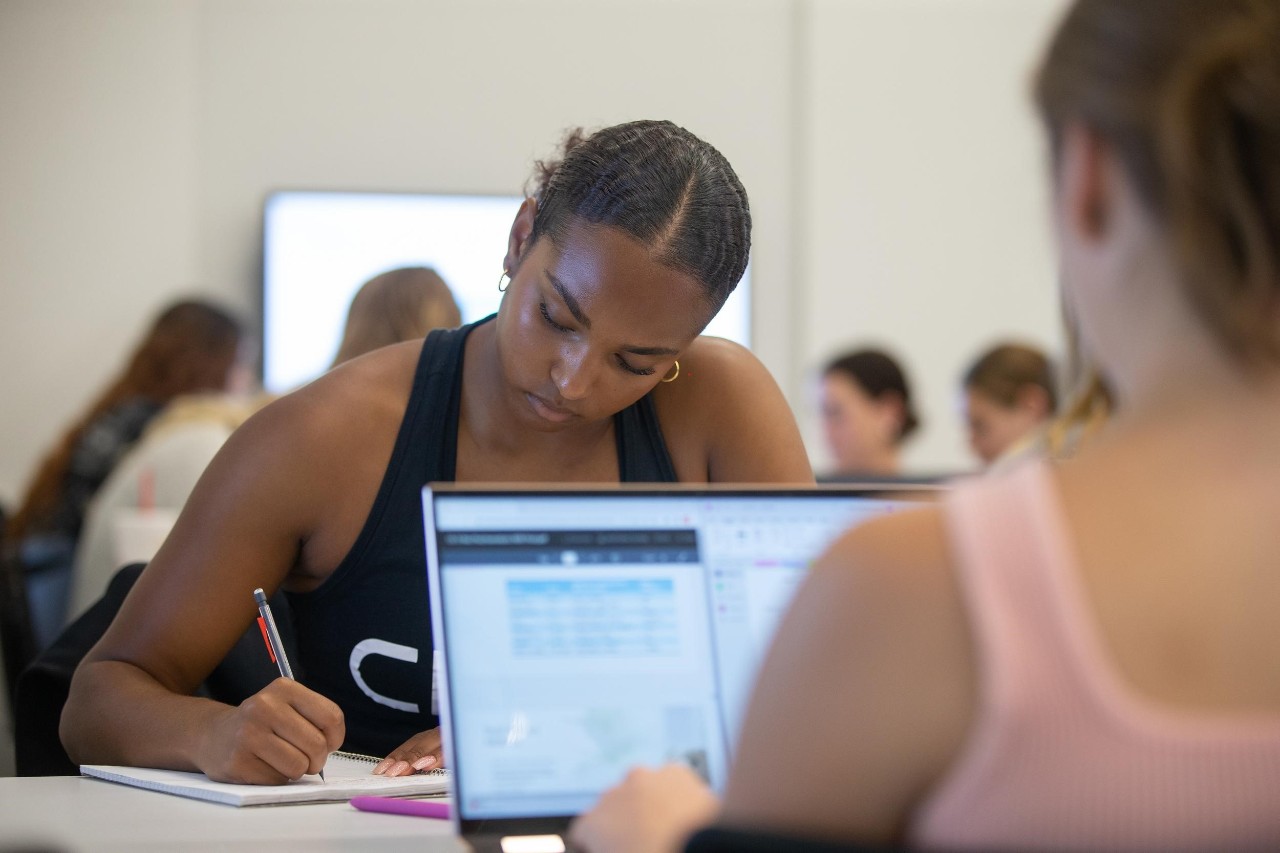
Psychology students take notes in class. The College of Arts & Sciences is UC's largest college and has more first-gen students than any other in the university. Photo/Andrew Higley/UC Marketing + Brand
A success coach is here to help
Corinne Cook, director of retention and student success in the College of Arts & Sciences (A&S), says UC’s largest college uses success coaching to support its growing first-generation student population. This year, A&S matched every first-year generation student with a success coach to support their transition to UC.
Cook says success coaches focus on building unique, individualized, trusting relationships with students to determine what resources and opportunities first-gen students need to make the most out of their experience at UC.
Success coaches help students set goals, implement next steps and hold them accountable along the way, explains Cook. To do this, coaches dedicated to first-gen students work with smaller groups of students to ensure that they can provide in depth and timely support.
“During peak seasons, advisers can be booked out for some time, but a success coach may have the ability to meet with a student to discuss topics like academic success skills, getting involved in campus, finances, and well-being," says Cook. “We can be there in real time and really be responsive. In addition to the flexibility, it allows us to spend more time with the students.”
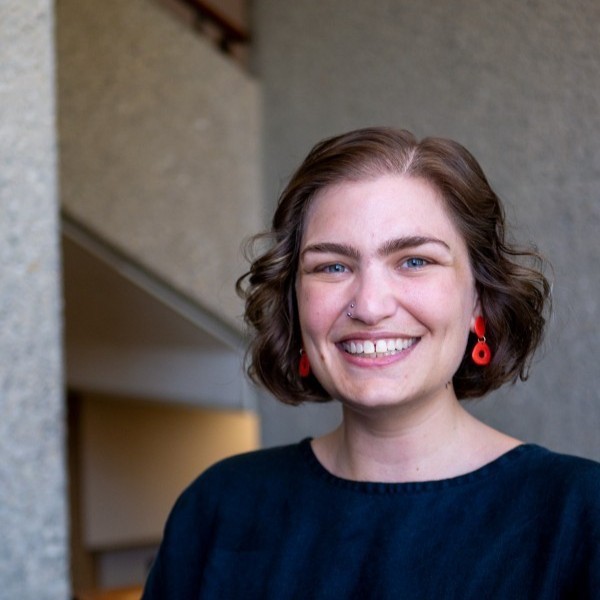
Corinne Cook | Photo/Corrie Mayer/University of Cincinnati
The support a success coach provides goes beyond referring the student to a resource in housing, tutorial services or counseling, and includes making that connection on the student’s behalf and accompanying that student to a meeting to give reassurance and support, explains Cook.
“What this really comes down to is that universities are big bureaucratic systems with a lot of rules and processes and multilayered activities that involve a lot of different offices,” says Cook. “There is a ‘hidden curriculum’ of rules and expectations for how to be successful at a university; we recognize that some students don’t have access to that knowledge when they enter UC.”
“When we are thinking about first-gen students we do see some students determined to figure things out on their own and not wanting to burden people,” says Cook.
But it’s OK to ask questions, seek advice and not know everything about a university right away. “We are going to celebrate you for doing that,” says Cook.
Cook, a UC alum, remembered an English professor who, on the first day, encouraged her to come to her office hours. “If you come you will get a better grade,” Cook recalls. “I thought, ‘It’s that easy? You come and you get a better grade?’”
“The professor wasn’t just handing out good grades, but what I realized later is that it was all about creating relationships,” says Cook. “It’s about your presence and the effort you put into the college experience that will make you successful. It’s all these little things that as an institution we see as indicative of someone being a good student and being worthy of investment. We want to ensure that every student can be seen that way.”
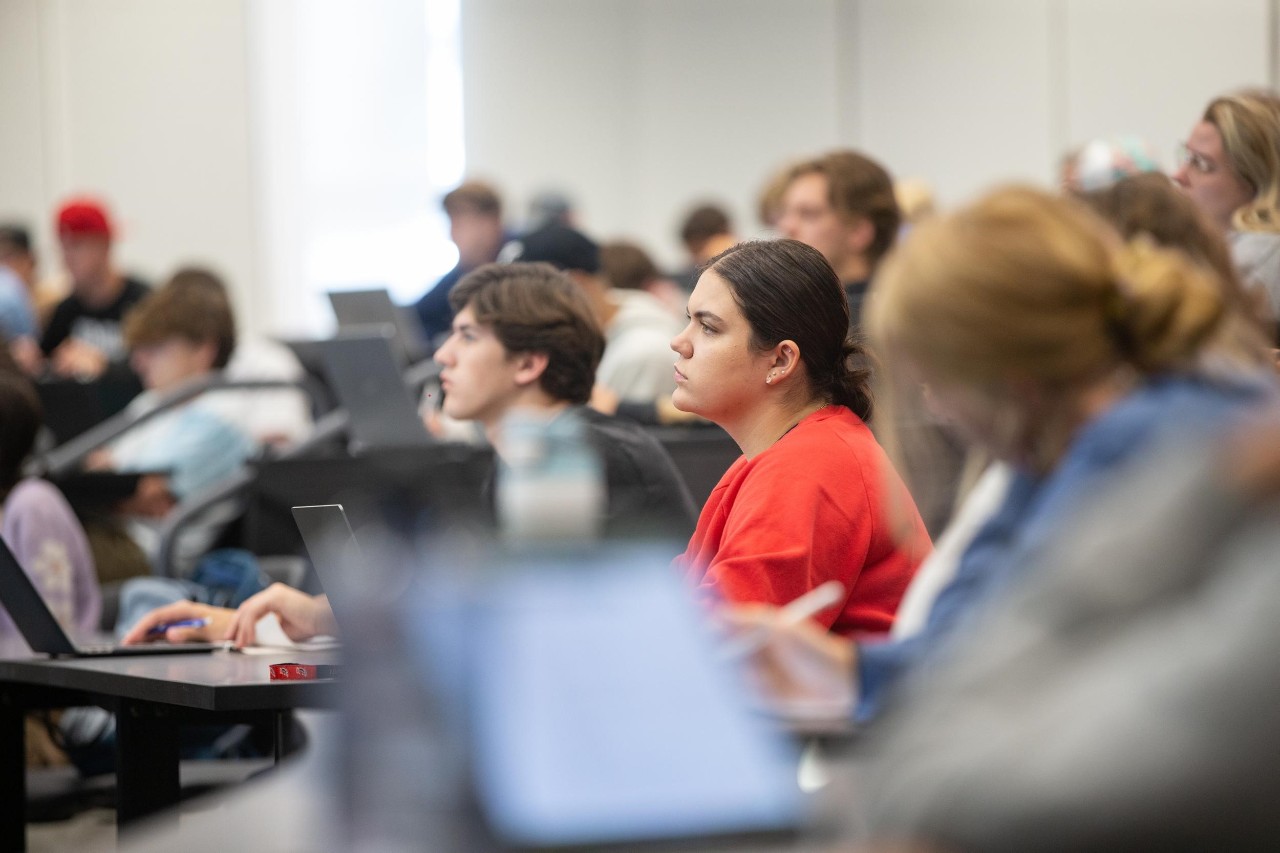
DAAP students listen to a lecture. First-generation students are represented in all 14 of UC's colleges. Photo/Andrew Higley/UC Marketing + Brand
Gratified to see more first-gen students
Laura Carnaghi, associate director for student success in the College of Education, Criminal Justice, and Human Services (CECH), says it's heartening to see increasing numbers of Bearcats who are first-generation college students.
At CECH, the Student Success Team consists of an undergraduate program manager of student success, graduate program manager of student success, assistant director of career development, an embedded mental health counselor and a program coordinator for student success. The team will soon be adding a new program director for social services and wellness.
Carnaghi says the student success team focuses on the holistic student, knowing that socio-emotional, financial, and physical factors are just as important to student success as intellectual ability. The team is in the CECH Student Services Center and works in tandem with academic advisors to provide a wraparound approach for all students.
CECH is also excited to be the first full satellite location for the Bearcat Pantry and Resource Center, says Carnaghi.
“We know first-generation students come to us with unique needs and we really like to tailor our support to that individual student,” says Carnaghi. “We never assume that two students who maybe look alike have the same background, experience or knowledge. We look at students as individuals, but we also recognize that community is very important.”
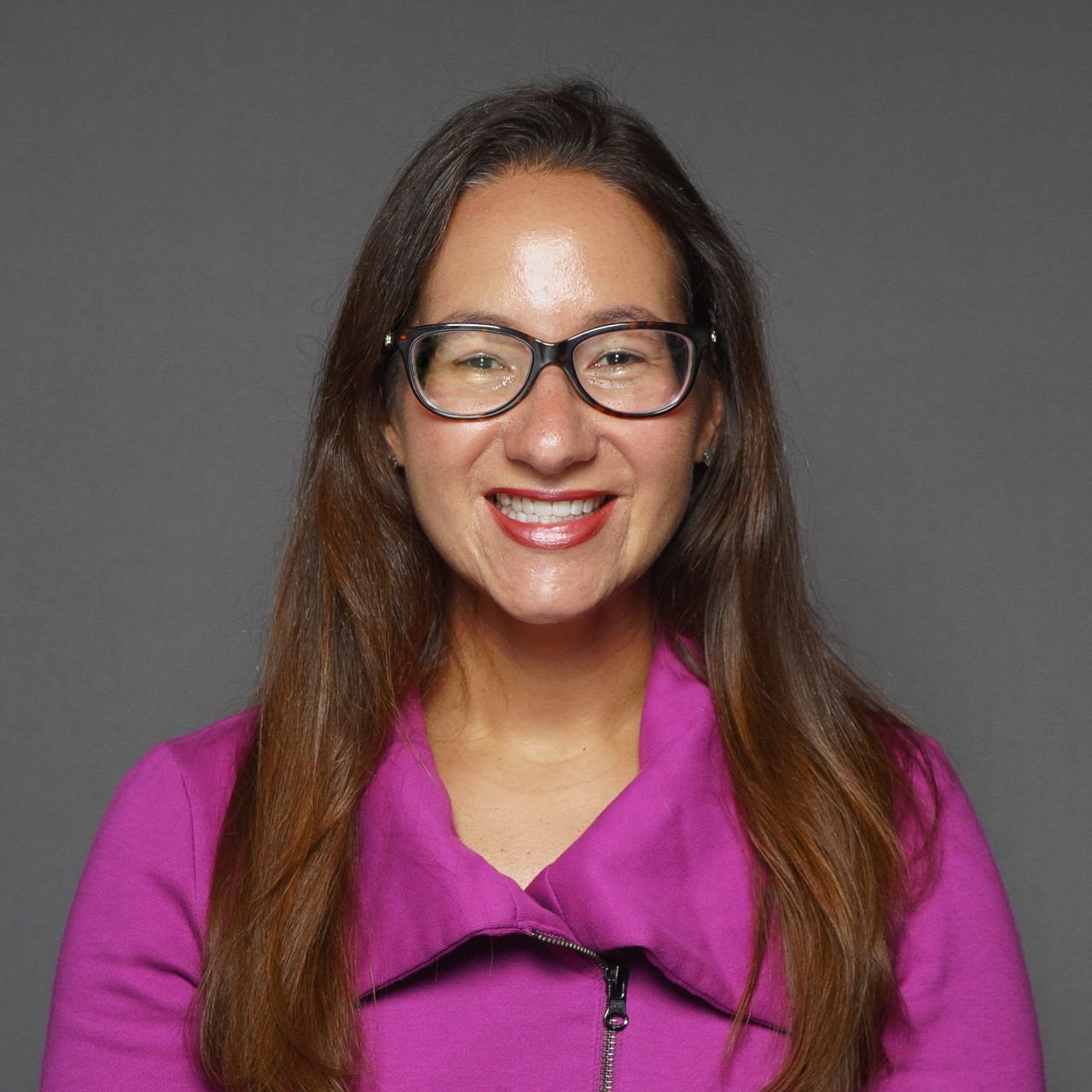
Laura Carnaghi | Photo/provided
Last year was the first time that CECH offered activities associated with national First-Gen College Day. There was a reception for first-gen students with a guest speaker and CECH handed out a total of 16 scholarships, valued at $2,000 a piece, to first-gen undergrad and graduate-level students. A similar event with scholarship awards is planned on Thursday, Nov. 9, in Teachers-Dyer Complex.
“It’s our mission to ensure that every CECH student has the tools, resources and supports to reach their full potential," says Carnaghi. “College is a significant investment, and we want all our students to achieve their goals. We will be there with them every step of the way."
Jack Miner, vice provost for enrollment management, says UC’s interest in first-gen students is part of the university’s long-term mission.
“This is one of the key ways that UC is ‘of’ Cincinnati rather than just ‘in’ Cincinnati,” says Miner. “We are here to lift up communities and provide opportunities. Part of that is making sure that the next generation does better, has more opportunities and is stronger. We are able to do that by making a college education a reality.”
“I want a college education to be within reach for everyone in Cincinnati,” says Miner. “We need to ensure that we have a workforce to support the jobs that are here today but also to attract the businesses and industries that will allow Cincinnati to thrive for decades to come.”
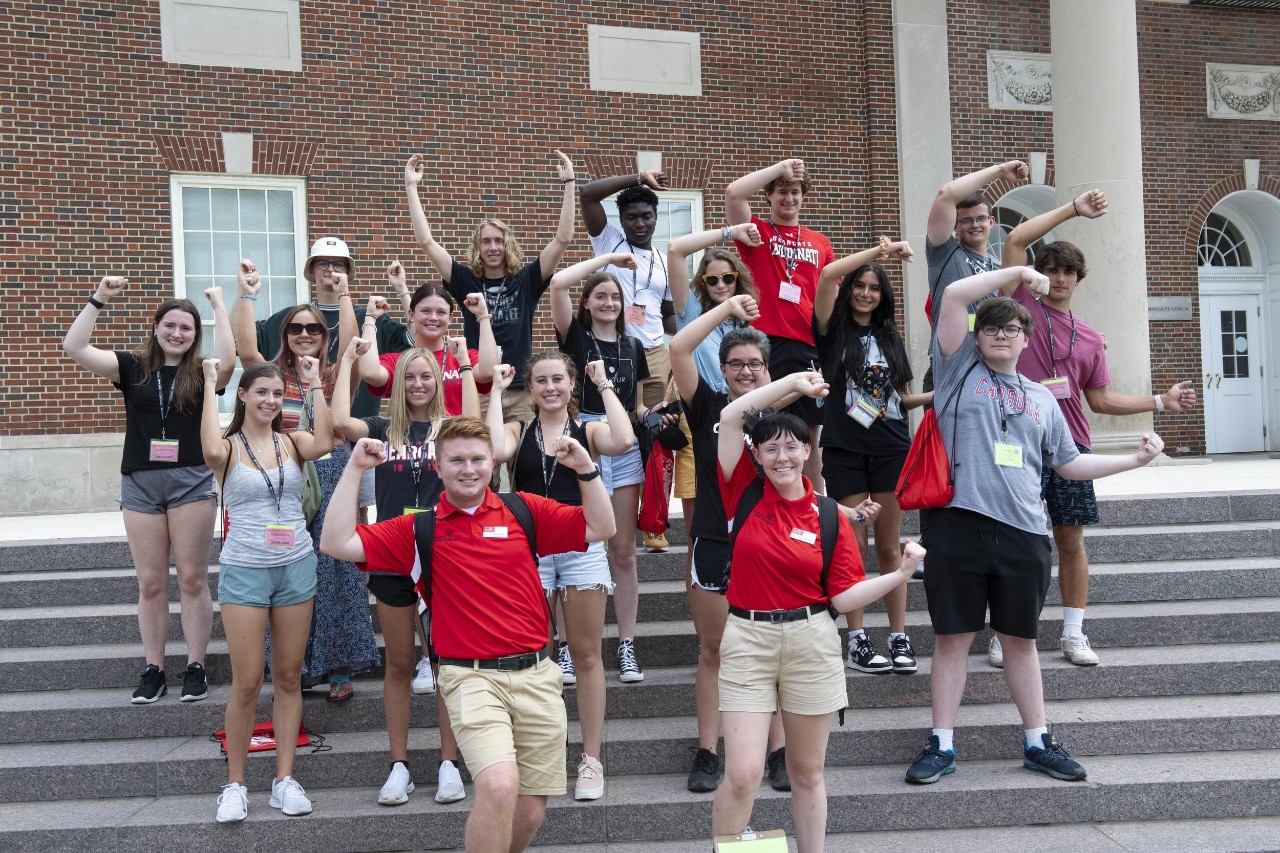
UC students pose during an orientation session. Photo/Colleen Kelley/UC Marketing + Brand
Featured image at top of Trenton Stern/courtesy of UC Foundation
Become a Bearcat
Whether you’re a first-generation student or from a family of Bearcats, UC is proud to support you at every step along your journey. We want to make sure you succeed — and feel right at home.
Tags
- Impact
- College-Conservatory of Music
- College of Pharmacy
- College of Medicine
- College of Arts and Sciences
- College of Allied Health Sciences
- Student Experience
- Academic Health Center
- College of Cooperative Education and Professional Studies
- College of Education, Criminal Justice, & Human Services
- Blue Ash College
- Clermont College
- College of Design, Architecture, Art, and Planning
- College of Law
- College of Nursing
- Lindner College of Business
- Admissions
- College of Engineering and Applied Science
Related Stories
Just in: UC tops 50,000 students
August 21, 2023
The University of Cincinnati is anticipating a record fall enrollment with a projected 50,500 students. The growth represents a 5.39% increase and reflects the university's core values around academic excellence, access and inclusion, and affordability.
UC growth continues as Big 12 newbie admits largest class
September 15, 2023
It's now official. The University of Cincinnati enrolled 50,921 students for the fall semester. Growth has been continuous with the student body increasing by 19% during the past decade.
UC’s growing resources for first-generation students
November 7, 2023
Nearly one in five UC students are considered first-generation college students — meaning they and their siblings are the first in their family to attend a four-year institution of higher learning. UC is attracting a growing number of first-gen students; their numbers jumped by 8% this fall on campus.
